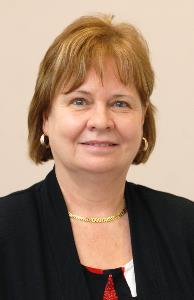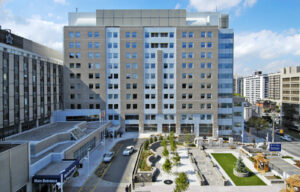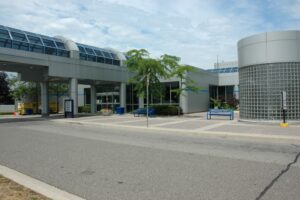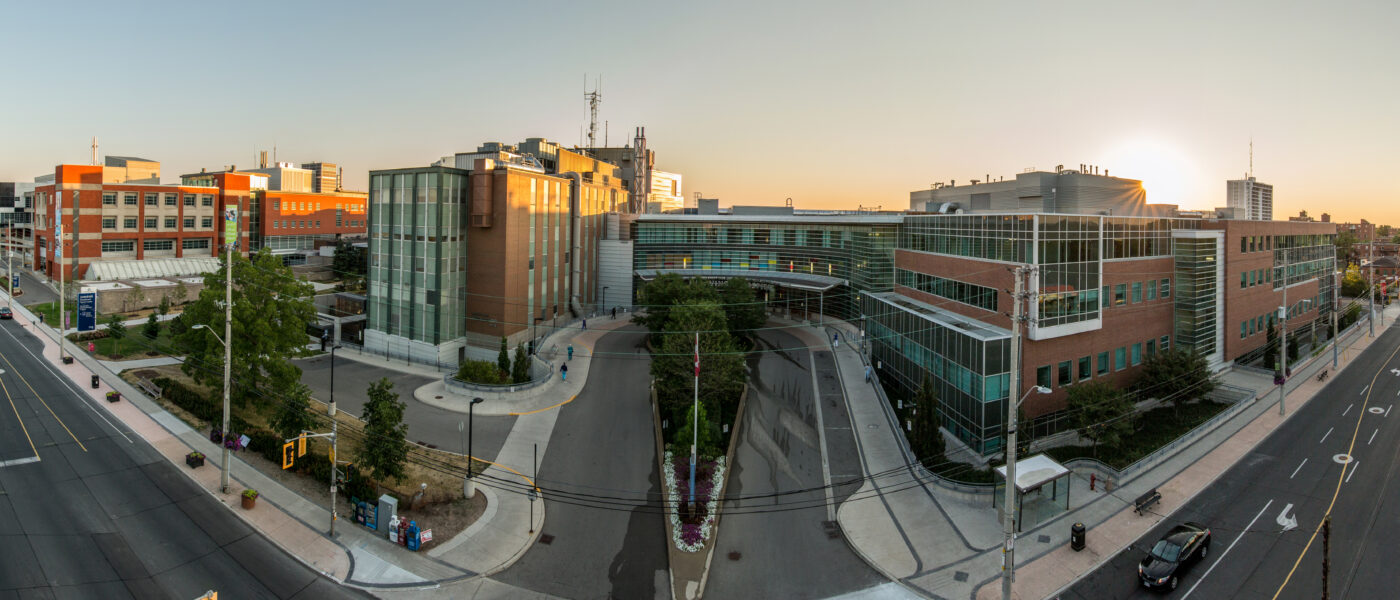
Chief of Anesthesia,
St. Joseph's Healthcare Hamilton
The Department of Anesthesiology and Pain Management SJHH is located at a very busy teaching hospital with three sites: Charlton Campus, King Street Campus, and the West 5th Site.
We have 25 FTEs and 1 part-time member, as well as 7 anesthesia assistants and one nurse practitioner to help support our Acute Pain Service (APS). The vast majority of our staff are involved not only in clinical activity, but also in undergraduate and postgraduate education, administrative, and/or research roles. There is a clear mandate in the Department that all stuff must not only be involved in clinical duties, but also in one of these aforementioned areas.
Regular educational Rounds are held at SJHH – “Trouble” Rounds for residents are led by a staff anesthesiologist on Tuesday mornings for all resident staff. There are Morbidity and Mortality Rounds (presented by Anesthesia staff), and Resident Rounds (presented by resident staff) once per month. We also have a dedicated anesthesia conference room within the operating room complex, supplied with a white board, computers, and telephones for staff and resident use. We offer multiple opportunities for student block and horizontal electives, as well as training for off-service residents (GIM, ICU, and ED). Several of our staff are trained in simulation and, under the guidance of Dr. Peachey, teach at the simulation centre. Dr. Wong, our part-time staff at SJHH, is Associate Chair of Education in the Department of Anesthesia and Assistant Dean for the Program for Faculty Development. Two of our staff, Drs. Horner and Lajoie, are executive members of our Medical Staff Association. Dr. Lajoie is also medical lead for Hospital Flow, and Dr. Baxter is medical lead for patient safety.
Expandable List
 The Charlton Campus has a very busy surgical program (11,836 cases performed each year, including 2,686 emergency cases). In addition, we have a low-risk Birthing Unit with 3,400 deliveries per year. The Charlton site is home to a number of centres of excellence and has several very active surgical programs. We are the regional centre for Bariatric bypass surgeries (686); open laparoscopic and robotic thoracics (830); major urology including robotic surgery; and cadaveric, live donor, and donor exchange renal transplantation (96). SJHH also has a busy head and neck oncology, orthopedics, and general and gynecological surgery programs.
The Charlton Campus has a very busy surgical program (11,836 cases performed each year, including 2,686 emergency cases). In addition, we have a low-risk Birthing Unit with 3,400 deliveries per year. The Charlton site is home to a number of centres of excellence and has several very active surgical programs. We are the regional centre for Bariatric bypass surgeries (686); open laparoscopic and robotic thoracics (830); major urology including robotic surgery; and cadaveric, live donor, and donor exchange renal transplantation (96). SJHH also has a busy head and neck oncology, orthopedics, and general and gynecological surgery programs.
Our department has developed a very busy and successful set of three block rooms, located in the Post Anesthetic Recovery Unit. These rooms are equipped with monitors, ultrasound machines, nerve stimulators, supply carts, and resuscitative equipment, providing a safe and private location for regional blocks to be performed on patients preoperatively. The success of these block rooms has been two-fold: they have assisted with improvement of patient flow (the blocks are performed in tandem with the OR cleanup and turnover) and there have been considerable savings in available operating time. The block rooms have also proven to be an excellent and relaxing teaching environment and have been applauded both by the Anesthesia residents and by the Residency Program. A regional anesthesia resident is assigned to the block room and is assigned to the block room and is able to perform most of the blocks done on a daily basis under the direct supervision of the staff anesthesiologist. Numerous types of blocks, including upper and lower limb, spinals, and epidurals (abdominal and thoracic) are performed in the block room. In addition, the block rooms are used for intravenous and arterial line placement, as well as for topicalization for awake intubations. THe residents also have exposure to other blocks, such as TAP and Bier Blocks.
 The King Street Campus has four fully-equipped operating rooms and is used for opthamological surgery, chronic pain procedures, and outpatient plastic surgery. There are currently three chronic pain specialists in our department, Drs. Forero, Shanthanna, and Chan, and these individuals see a large volume of patients in consultation and perform numerous chronic pain procedures at the King Street site. Dr. Chan has recently negotiated some financial support from the province and this has allowed some expansion and reorganization of Chronic Pain services.
The King Street Campus has four fully-equipped operating rooms and is used for opthamological surgery, chronic pain procedures, and outpatient plastic surgery. There are currently three chronic pain specialists in our department, Drs. Forero, Shanthanna, and Chan, and these individuals see a large volume of patients in consultation and perform numerous chronic pain procedures at the King Street site. Dr. Chan has recently negotiated some financial support from the province and this has allowed some expansion and reorganization of Chronic Pain services.
 In 2013, most anesthesia services for electroconvulsive therapy (with the exception of patients with serious comorbidities) were moved from Charlton to a state of the state of the art facility at West 5th Campus – a collaborative effort between the Department of Anesthesia, Psychiatry, and Redevelopment. There is a dedicated and private room for the treatments, affording considerably more privacy and dignity for the treatments. Resident involvement in ECT anesthesia has been regularly established.
In 2013, most anesthesia services for electroconvulsive therapy (with the exception of patients with serious comorbidities) were moved from Charlton to a state of the state of the art facility at West 5th Campus – a collaborative effort between the Department of Anesthesia, Psychiatry, and Redevelopment. There is a dedicated and private room for the treatments, affording considerably more privacy and dignity for the treatments. Resident involvement in ECT anesthesia has been regularly established.

